
FAQ
-
Pest Library
-
Ants
Carpenter ants are a species that stands out among those pests that are most common in our area because carpenter ants are wood-destroying pests. Unlike termites, carpenter ants don't eat wood but instead nest inside it. This species forages for food and lives in a large colony made up of hundreds of thousands of members like other species do.
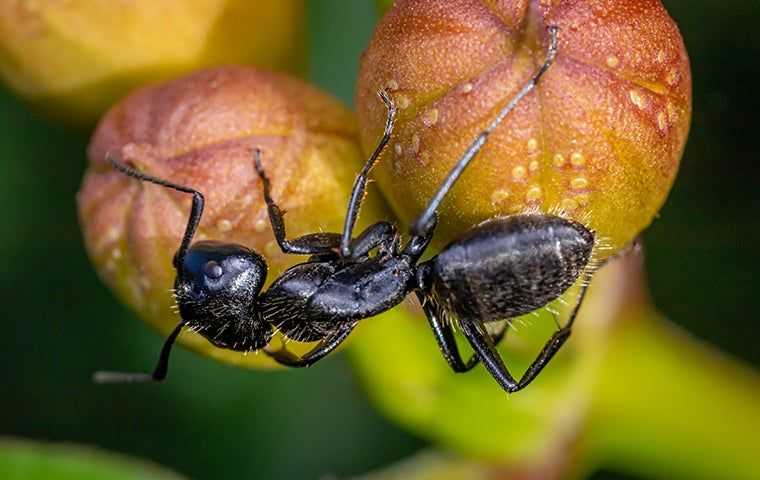 While carpenter ants cause damage to properties, other species can spread diseases and cause contamination. However, most ant species that affect homes are considered nuisance pests. While this is the case, any ant infestation should not be taken lightly and taken care of right away.
While carpenter ants cause damage to properties, other species can spread diseases and cause contamination. However, most ant species that affect homes are considered nuisance pests. While this is the case, any ant infestation should not be taken lightly and taken care of right away.At Ultimate Pest Control, we offer specialty ant control services in Long Island, NY. We customize these services to each client's individual needs. The treatments we use include but are not limited to perimeter spray, granular around the foundation, gel baits, and eco-friendly baits used on the interior.
We also recommend the following tips to help make your home less attractive to ants:
- Keep up with yard maintenance such as mowing the lawn, trimming bushes and trees, and removing fallen fruit and organic debris.
- Repair entry points such as cracks in the foundation, gaps around windows and doors, and holes along the roofline.
- Trim branches that touch your home because ants can use them to travel to the roof.
- Regularly clean your home to eliminate food sources, keeping kitchens and eating areas clear of crumbs.
- Address moisture issues such as leaky pipes and faucets and poor ventilation.
-
Mosquitoes
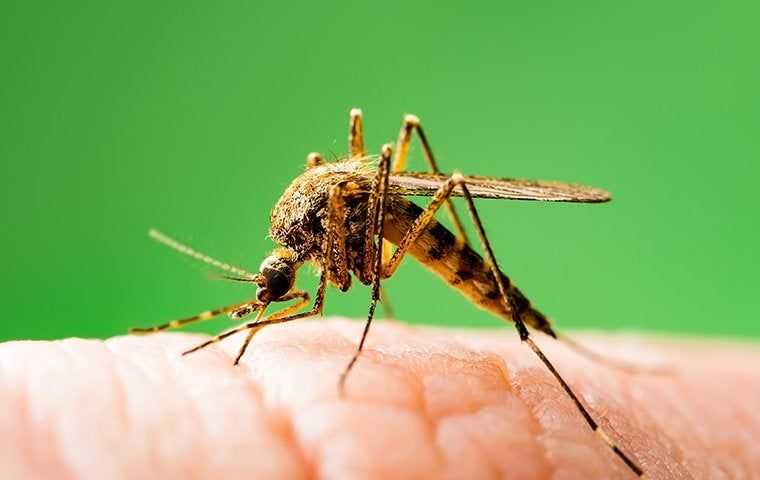 Mosquitoes are a big problem for many Long Island residents. Our warm and moist weather provides the perfect conditions for these pests to thrive in the summer. Mosquitoes lay their eggs on the surface of stagnant water, and to do so, they only need a small amount, which means that your property can provide many potential breeding sites for mosquitoes.
Mosquitoes are a big problem for many Long Island residents. Our warm and moist weather provides the perfect conditions for these pests to thrive in the summer. Mosquitoes lay their eggs on the surface of stagnant water, and to do so, they only need a small amount, which means that your property can provide many potential breeding sites for mosquitoes.While mosquito bites are usually no cause for concern, this pest is a vector of many dangerous diseases. The most prominent pathogen spread by mosquitoes in the United States is West Nile virus; however, they can also transmit Zika, dengue, and chikungunya. Mosquitoes spread heartworms to dogs, too.
If you are tired of dealing with mosquitoes, contact our experts at Ultimate Pest Control. We provide a seasonal program from April to October to help reduce mosquito populations on your property. We use green products that are bio-degradable and safe for your family.
Our Long Island mosquito control services will help keep mosquitoes away, but you should also make your property less conducive to these pests by eliminating breedings sites and shaded areas:
- Empty collected rainwater and fill in ground holes.
- Keep gutters from getting clogged and remove organic debris from your yard.
- Use filters and property treat pools, ponds, and other water features.
- Keep your grass cut short and foliage maintained.
-
Rodents
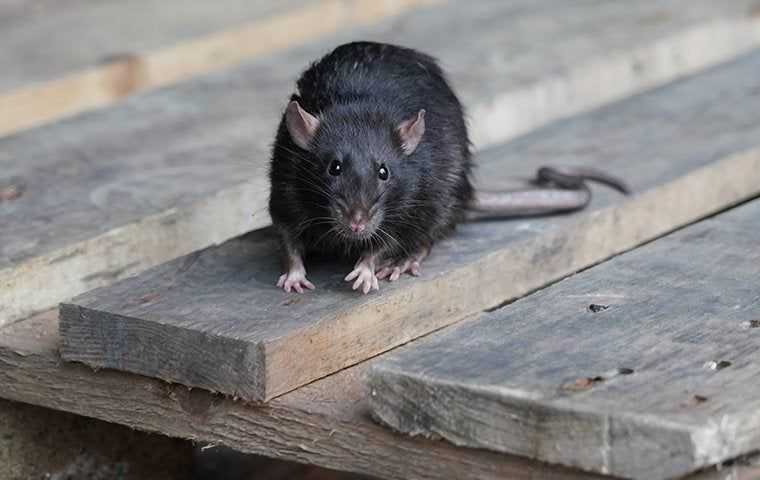 Mice and rats are the most common home-invading rodents. Rats can squeeze through a hole the size of a penny, while mice only need a hole the size of a dime. These rodents rely heavily on people for the essentials of food, water, and shelter. It doesn't help that these pests are not very picky but instead take any opportunity to invade.
Mice and rats are the most common home-invading rodents. Rats can squeeze through a hole the size of a penny, while mice only need a hole the size of a dime. These rodents rely heavily on people for the essentials of food, water, and shelter. It doesn't help that these pests are not very picky but instead take any opportunity to invade.Once inside, mice and rats can wreak havoc on a home. These pests spread dangerous pathogens and parasites, causing contamination and creating cosmetic and structural damage.
You should investigate any signs of rodents right away. The best thing for Long Island residents is to contact us at Ultimate Pest Control. We provide quick and affordable pest control that is reliable and effective. With our residential pest control services, you can protect yourself and your family against rodents year-round.
While our rodent control services will help keep rodents away, you should also use these tips for the best results:
Remove bird feeders, fallen fruit, and compost piles to eliminate food sources outside.
Keep your home clear of crumbs and store open food in airtight containers.
Use garbage cans with tight-fitting lids.
Repair leaking pipes and faucets.
Identify and seal potential entry points.
Keep your home clutter-free to reduce harborage areas and make it easier to clean.
-
Stinging Insects
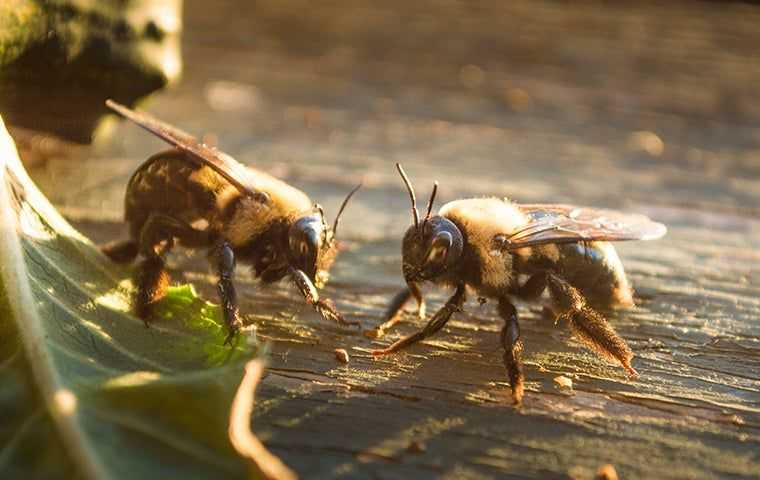 Wasps, bald-faced hornets, and bees are some of the stinging insects you might experience in our area. While they may be pests to us, they are essential pollinators. Some of these insects are also predators and help regulate other insect populations.
Wasps, bald-faced hornets, and bees are some of the stinging insects you might experience in our area. While they may be pests to us, they are essential pollinators. Some of these insects are also predators and help regulate other insect populations.Stinging insects aren't called this for no reason. These pests can deliver painful stings to people or animals that threaten them. When they sting, they also inject venom, which can be dangerous to those that are allergic.
It would be best if you didn't try to remove stinging insects on your own as it can put you and others in danger. Instead, call us here at Ultimate Pest Control for expert stinging insect and removal services. With our residential pest control services, you receive three scheduled visits a year, and we cover stinging insects and many other pests!
To best keep stinging insects away, we recommended the following prevention steps:
- Reduce flowering plants close to your home.
- Use garbage cans with tight-fitting lids.
- Rinse out food containers before throwing them away and clean garbage cans when necessary to remove food residue.
- Seal cracks in the exterior walls and around windows and doors to prevent these pests from getting inside.
Don't forget; you can rely on our team of experts at Ultimate Pest Control for all your pest control needs!
-
Termites
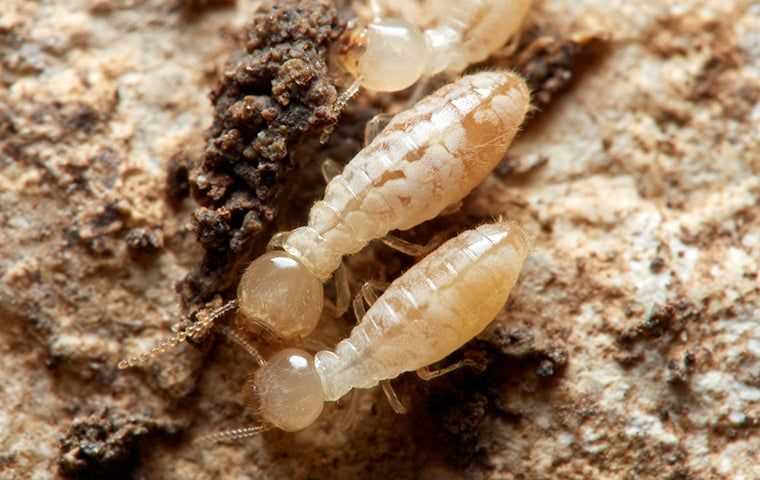 The most common wood-destroying pests are subterranean termites. These termites require a lot of moisture to survive, more than the wood they infest can provide. Because of this, subterranean termites create their nests underground, using mud tubes to travel to a food source while maintaining contact with moist soil.
The most common wood-destroying pests are subterranean termites. These termites require a lot of moisture to survive, more than the wood they infest can provide. Because of this, subterranean termites create their nests underground, using mud tubes to travel to a food source while maintaining contact with moist soil.Subterranean termites are the most common and the most destructive insects because their colonies tend to be much larger than other termites. They are also attracted to water-damaged or decaying wood already weakened before these pests get to it. And because termites don't live out in the open like other pests, they are not noticed as quickly, giving them more time to cause damage.
Contact Ultimate Pest Control for yearly inspections to prevent termites on your property and ensure they haven't moved in. Our specialty termite control services offer the protection Long Island homeowners need from these wood-destroying pests!
Along with our assistance, use these tips to reduce the likelihood of a termite infestation:
Repair leaks, remove as much water-damaged wood as possible, and properly dry wood you can't replace.
Ensure gutters and downspouts are guiding water away from your foundation.
Create a barrier between the soil and the foundations using crushed rocks.
Keep your yard clear of organic debris such as leaf piles and grass clippings.
Seal cracks in the foundation and exterior walls of your home to prevent termites from getting inside.
-
Wildlife
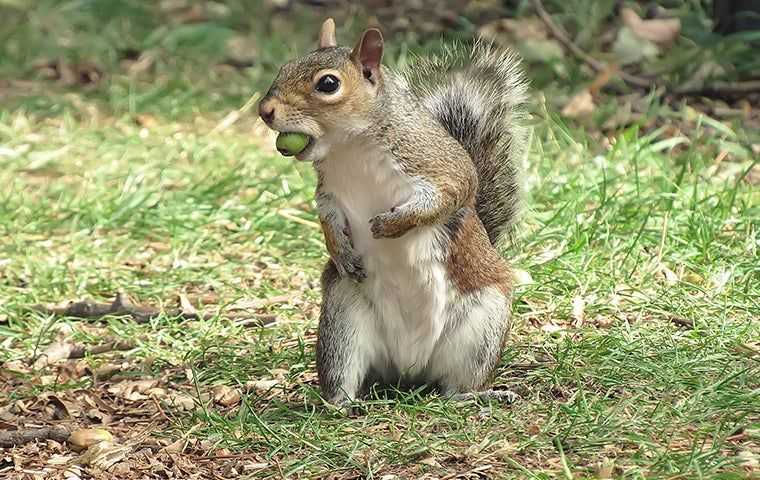 Squirrels and raccoons are two of the most common wildlife pests. These animals look to residential properties for food, with squirrels foraging from bird feeders, nuts, and fruit. Raccoons, on the other hand, are known for raiding garbage cans.
Squirrels and raccoons are two of the most common wildlife pests. These animals look to residential properties for food, with squirrels foraging from bird feeders, nuts, and fruit. Raccoons, on the other hand, are known for raiding garbage cans.Squirrels and raccoons both cause many problems on the properties they infest. These problems include the spreading of dangerous parasites and pathogens like rabies. They also cause damage and contamination, especially if they make their way into a home.
If you are dealing with wildlife, whether in your home or your yard, you should contact us at Ultimate Pest Control. No matter what kind of pest is causing you problems, we have a solution! We offer one-time treatments or monthly, quarterly, or seasonally ongoing services to provide year-round protection.
Help to deter wildlife from your property with these recommended tips:
Install or repair damaged fencing.
Use garbage cans that wildlife can't easily knock over and that have tight-fitting lids.
Remove bird feeders, nuts, and fallen fruit from your yard.
Install motion-activated lights to deter nocturnal critters.
Make certain there are no ways for these pests to get inside by installing vent covers and chimney caps, repairing holes, and animal-proofing crawl spaces.
-